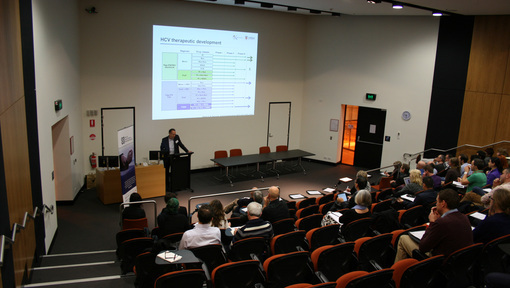
HIV and hepatitis C (HCV) treatment as prevention in people who inject drugs was the focus of today’s Centre for Research Excellence into Injecting Drug Use (CREIDU) Colloquium, ahead of AIDS 2014.
Designed to bring researchers together with policy makers, practitioners and affected communities, the Colloquium focused on the opportunities, challenges and benefits to public health.
Hosted by Burnet Institute, experts from the USA, Switzerland, France, England and Australia spoke at the event.
Burnet Institute’s Head of Centre for Population Health, Professor Margaret Hellard said there have been considerable changes in the HIV field, suggesting treatment as prevention is a real possibility to tackle the epidemic.
She said treatment of hepatitis C is now facing a massive paradigm shift, with new drugs offering the potential for a cure rate of more than 90 per cent for 12 weeks or less of therapy.
“It is possible to have a massive impact on hepatitis C by treating people who inject drugs,” said Professor Hellard.
Kirby Institute’s Professor Gregory Dore said treatment of HCV was becoming less complicated.
He said he didn’t think HCV resistance would be a major clinical issue as it has been with HIV treatments, because of effective new HCV drugs.
Image: Kirby Institute's Professor Gregory Dore presents at the 2014 CREIDU Colloquium.
Written by Lydia Hales